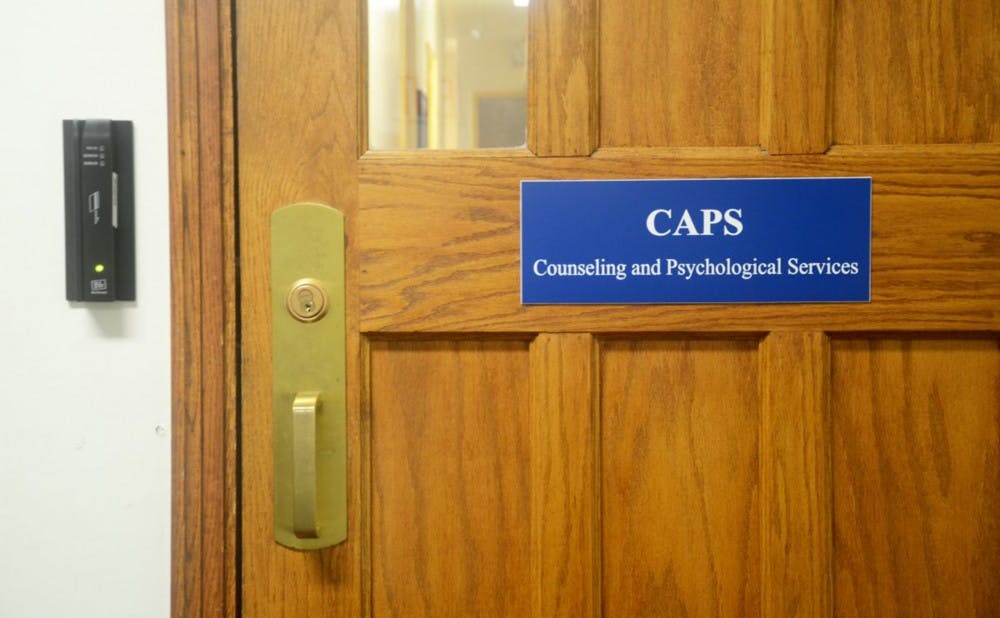The first round of midterms bring the expected rush to the library and along with it the inevitable sacrifice of sleep.
Like college students across the country, Duke students frequently go without the requisite amount of sleep in order to stay ahead in academics, participate in extracurricular activities or spend time being social. According to an article in the Journal of Nature and Science of Sleep, 70 percent of college students get insufficient amounts of sleep and 50 percent report daytime sleepiness. The University’s Student Wellness Center and Counseling and Psychological Services said they did not have specific statistics on the amount Duke students sleep, though staff members did discuss the effects of sacrificing sleep.
“I think I am adjusted to it now, but I am probably always sleep deprived,” said sophomore Marissa Farbman, who noted that she averages around six hours of sleep per night but can sleep anywhere between five and nine hours in a night.
Going without a full night’s sleep for a long period of time can negatively impact all aspects of student life, explained Jean Hanson, associate director of outreach for the Wellness Center.
“The majority of the students we see have trouble getting a full night’s sleep,” Hanson said.
The Wellness Center sees students for many reasons, including self-referrals, alcohol counseling and health coaching, and according to Hanson, almost all of these students say that they are not getting enough sleep. Information on the Duke Student Health website recommends that students should try to get eight hours of sleep.
Hanson noted that sleep is a vital part of health for a variety of reasons. Chemicals and hormones are released during sleep that boost the immune system and encode short-term memory into long-term memory, in addition to lowering blood pressure and diabetes risk and allowing the body to recover from a day’s work.
“By shortening the hours [of sleep], you are not getting this backstage stuff that is supposed to be happening,” Hanson said.
Sleep is necessary not only for physical well-being but also mental health, noted Holly Rogers, a CAPS staff psychiatrist.
“Most of the things we see at CAPS are stress-related conditions, where the stress has become so unmanageable that [patients] are starting to get symptoms of anxiety or depression,” Rogers said. “A large part of the time, trouble sleeping is a part of that.”
Another factor that prevents students from sleeping is the use of electronic devices, Hanson explained. The blue light produced by these devices prevent the production of melatonin, which is vital in inducing sleep in the body.
“When the sun goes down, your melatonin starts revving up,” she said. “But with computers and phones, that blue light in your face suppresses that.”
She suggested that students turn off their screens and notifications 30 minutes before bed in order to fall asleep faster.
Throughout the last few years, sleep deprivation has become a much more prevalent cause of depression and anxiety, Rogers said. Additionally, once a person develops depression and anxiety, a chief symptom of those illnesses is an inability to sleep, a condition brought about by the release of stimulating hormones by the nervous system.
“It’s kind of a chicken and the egg sort of problem,” Rogers said. “No matter how tired you are, you just can’t fall asleep and then you’re sleep deprived and it’s a nasty cycle that gets going.”
Rogers noted that the study of the brain and sleep remains under investigation, but it is clear that the amount of sleep required to remain healthy varies on an individual basis.
Similarly, the levels of background activity that people can fall asleep to differs as well.
“Some people can fall asleep standing up in the back of the bus, and other people just aren’t efficient sleepers,” Rogers said. “They can’t have any noise or they won’t be able to fall asleep or will be woken up easily.”
People who are poor sleepers are also the most at-risk for developing stress or anxiety, on top of their baseline sleep deprivation, she added.
Although some students report that they are not always sleep deprived, they recognized the effects of lack of sleep.
“Nights when I don’t get six to eight hours, I definitely feel the impacts [of sleep deprivation],” said Miles Ndukwe, a sophomore. “It’s really hard to get out of bed, I’m in a horrible mood and I might make poor decisions about whether or not to study or watch Youtube videos all day.”
Sophomore Aamir Azhar, who goes without six to eight hours of sleep once or twice a week, says that when he does not get enough sleep, the length of the next day is often shortened.
“For me it’s really hard to get up,” he said. “After that though I can get through the day but then I wind up crashing at 3 p.m. so it gets tough for me to do any work after my classes.”
Other students noted that the amount of sleep they get can vary on a weekly basis.
The most commonly cited reasons for the lack of sleep were work and work-related stress and procrastination. Some students said that these sleep habits formed in high school and have continued at Duke.
“If it’s affecting me, I have no idea,” said Danielle Dvir, a sophomore who averages five and a half hours of sleep a night.
Despite the fact that there is nothing that can replace sleep forever—including caffeine and stimulating drugs—Rogers said that almost everyone can go without sleep for a short period of time.
Even so, she said that going any longer will have serious impacts on one’s ability to function, including impacting memory.
“You’re chasing your tail if you’re going without sleep to study more, because your brain isn’t going to be able to process new information,” she said.
Get The Chronicle straight to your inbox
Signup for our weekly newsletter. Cancel at any time.

